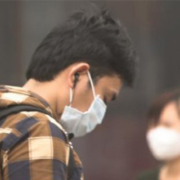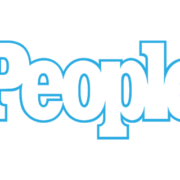Situasi Corona Bikin Kamu Cemas dan Kesepian? Atasi dengan Tips Ini
INDOZONE.ID – Menjaga jarak sosial (social distancing) di tengah situasi virus corona dapat berdampak pada kesehatan mental, seperti cemas dan kesepian.
Dilansir dari People, pencarian untuk “kesepian” saat ini telah mencapai tingkat tertinggi sejak tahun 2004 lalu, menurut Google.
Para ahli epidemologi mengungkapkan menekankan penerapan social distancing untuk mencegah penularan Covid-19 dapat memperburuk rasa cemas dan kesepian.
Cara Mengatasi Rasa Cemas dan Kesepian di Tengah Krisis Corona COVID-19
Liputan6.com, Jakarta – Pembaruan berita terus dihadirkan terkait merebaknya corona COVID-19 di seantero jagat. Upaya pencegahan ini dapat dilakukan dengan menjaga jarak sosial atau mengisolasi diri dan situasi kini dapat berdampak pada kesehatan mental.
Dilansir dari People, Senin (30/3/2020), menurut Google, pencarian untuk “kesepian” saat ini telah mencapai tingkat tertinggi sejak mulai dicari sejak 2004 lalu.
Sementara, para ahli epidemologi menekankan jarak sosial seperti membatalkan acara, menutup sekolah, membatasi kontak ke orang-orang, dirasa sangat penting untuk mengurangi penyebaran Corona COVID-19 dan mengurangi tekanan pada layanan kesehatan yang memperburuk rasa kesepian.
Coronavirus: Forcing us to rethink things we normally take for granted
For most human beings, the desire for companionship, engagement and socialization is a fact of life. Unfortunately, the coronavirus is forcing us to rethink many of things we normally take for granted. Not the least of which is the freedom to move about.
Limiting our options in a time of pandemic, while necessary and unpleasant, will eventually pass. However, what about the millions of individuals for which social isolation and loneliness are an everyday occurrence? How do they cope with a reality that is far too real and equally as debilitating?
According to The Kaiser Family Foundation, an independent nonprofit organization focusing on national health issues, about 4 in 10 adults in the U.S., more than 105 million of us, are at higher risk if infected with coronavirus. More than 76 million, or 72% — are age 60 or older. The remaining 29.2 million adults in this group are ages 18-59.
Deepak Chopra Is Live-Streaming a Global Meditation Session — Here’s How to Register
Earlier this week, Dr. Kevin Gilliland, a clinical psychologist and director of Innovation360, an outpatient resource center, and member of PEOPLE’s Health Squad, spoke to PEOPLE about the increased stress and anxiety many people are experiencing due to coronavirus.
“Situations with high levels of uncertainty are a breeding ground for excessive worry and anxiety,” he says. “The coronavirus outbreak is particularly challenging because it has layers of uncertainty. It’s a new virus and the experts are having to very quickly learn how it acts and moves in a community. There is still some uncertainty about what we do as individuals to prevent it. If you do get sick, it can be challenging to figure out if you have bad allergies, the flu or coronavirus.”
How to Manage Anxiety and Loneliness During the Coronavirus Pandemic
Between the constant news updates on the new coronavirus (COVID-19) and the loneliness that comes from social distancing or quarantining to slow its spread, current events can take a toll on mental health.
According to Google, searches for “loneliness” have now reached the highest level since it started tracking searches in 2004. While epidemiologists emphasize that social distancing — canceling events, closing schools, limiting person-to-person contact — is essential to reducing the spread of coronavirus and ease the pressure on healthcare services, it exacerbates the feeling of loneliness.
8 ways to super-charge endorphins when you are stuck at home
If, like many citizens of the world, you’re feeling anxious and depressed these days, take a big, deep breath! With so much uncertainty bouncing through the air and fears mounting about an unknown future, it’s natural to feel less than yourself. But, rather than giving in to these negative emotions, it’s important to try all that you can to find hope, energy and happiness. That’s why building endorphins—or better known as ‘feel-good’ hormones—should be part of your new daily routine.
As defined by NASM certified trainer with RSP Nutrition, CJ Hammond, XPS, FMT explains, these chemicals released through the brain are what bring feelings of euphoria, serving as stress and pain-relievers. In addition to some ways you can probably guess—like exercise—there are many ways to super-charge these hormones, right from the comfort of your socially-distant home.






